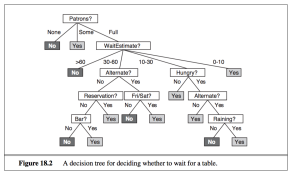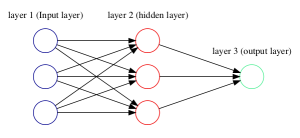To say we live in interesting times would be a vast understatement. Trying to keep up with the technological advances made is a job in itself. We are exposed to a huge amount of content, causing us to feel overwhelmed and frustrated; too much data can drag us back into the very same inertia we would be experiencing if there was absolutely nothing of interest going on.
We are at a pivotal point in history where we have an abundance of access to technology. Many of us are having trouble coming to terms with that. There is simply too much to do, an unlimited amount of potential. In a way, it can be easier to be forced down a narrow path than to figure out how to traverse down a huge boulevard. That is why we cannot be afraid to make mistakes and false starts as we refine our talents.
In computer science talk, technology has given us a large amount of edges per node (and this is greater than any point in our history), and our best choice to traverse down this exponentially large tree is do breadth first search with heuristics.
The learning process has changed on virtually every level and the old rules just don’t apply anymore. Rather than wait for someone to issue new rules, we need to plunge into our own era of experimentation and innovation and shape it for our own purposes of expression.
As easy and accessible as technology has made things, actual skill remains an achievement that can’t be bought or even given away. Social media has been known to drag people down to pits of trivia and irrelevance, wasting vast amounts of valuable time, potentially causing us to lose privacy and lose basic social skills. But social media can also be an invaluable resource if we /choose/ to use it in that way. Social media is a tool that has great potential, if it got people to think and to see results. People have tremendous potential power and most people don’t even realize it. This is precisely why governments in every country keep tight control over these new outlets, for example.
The abundance access to technology (and thus increased productivity) means as an individual, we are more empowered than ever – whether we work individually or in groups. As hackers, we generally like to explore our own interests and take our own paths. Writing from our own perspective is essential, but there is also strength in numbers. In groups, there are varieties of opinions and even disagreements, which, contrary to the belief of many, only serve to strengthen and help define the basic premise of the cause we are united on. In both cases, our skill and experience matters more than ever, as these technological tools can be leveraged to more devastating effects in their hands. The list of social media tools available today is huge, but the issue of skill and experience are just as relevant and vital as they’ve ever been.
Look forward to the explosion of creativity and productivity ahead in our new age.
Note: Contents in this post is inspired by 2600 The Hacker Quarterly Volume Thirty-One, Number Four, article title “Tools for a New Future”.

